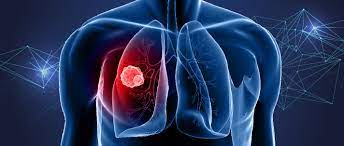
Air pollution may promote the growth of lung cancer in people who have never smoked by activating normally inactive cells in the lung that harbor cancer-causing mutations, new research indicates.
“This work adds to our understanding of the mechanism by which air pollutants promote the earliest stages of lung cancer, particularly in people who have never smoked,” William Hill, PhD, co–first author and postdoctoral researcher at the Francis Crick Institute, London, told Medscape Medical News.
The study, which assessed human lung samples and mouse cancer models, was published online April 5 in Nature.
Although smoking remains the chief risk factor for lung cancer, outdoor air pollution causes roughly 1 in 10 cases of lung cancer in the UK, according to Cancer Research UK. In 2019, about 300,000 lung cancer deaths around the world were attributed to exposure to ambient particulate matter measuring ≤2.5 μm (PM2.5).
While the link between air pollution and lung cancer is well known, the mechanism that explains this link has been harder to pinpoint.
One theory is that environmental carcinogens like tobacco smoke and UV light cause mutations by damaging DNA directly. However, recent data have hinted that that may not be the case.
In the current study, Hill and colleagues proposed that, rather than act on DNA directly, air pollutants might promote inflammatory changes in the lung tissue that wake up inactive cancer-causing mutations, which accumulate naturally in these cells as people age. This idea lines up with a decades-old theory of cancer promotion, according to which tumorigenesis is a two-step process: the initial step induces mutations in healthy cells, after which a promoter step triggers cancer development.
The study team focused on epidermal growth factor receptor (EGFR)–driven lung cancer, which is more common in never-smokers and light smokers, and on environmental particulate matter measuring ≤2.5 μm (PM2.5), which is fine enough to travel into the lungs and is associated with lung cancer risk.
Hill and colleagues analyzed data from over 400,000 people in three countries. They compared rates of EGFR-mutant lung cancer cases in areas with different levels of PM2.5 pollution. The team found a significant association between PM2.5 levels and the incidence of lung cancer for 32,957 EGFR-driven lung cancer cases in England, South Korea, and Taiwan.
The researchers then studied genetically engineered mouse models of lung adenocarcinoma to determine whether particulate matter exposure could trigger the development of lung tumors. In these functional mouse models, air pollutants led to an influx of macrophages in the lung and the release of interleukin-1β, a key mediator of the inflammatory response.
This process ultimately “fuels tumorigenesis,” the study team concludes.
The team also found that treatment with an anti-interleukin-1β antibody during PM2.5 exposure reduced lung cancer promotion by air pollutants.
A detailed mutational profiling of histologically normal lung tissue from 295 individuals revealed oncogenic EGFR and KRAS driver mutations in 18% and 53% of healthy tissue samples, respectively.
Article by









